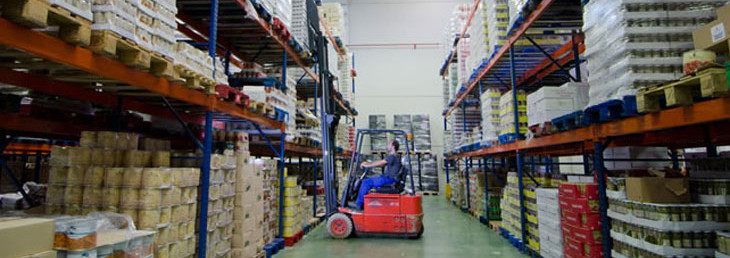Dia + Eroski: Competing to sell, cooperating to buy.

Joining forces by creating a common procurement body is probably one of the oldest ways for small and family business to cooperate to be able to compete against others more efficiently. More recently, successful SMEs common procurement centers have even evolved to share not just buying force but both other easily outsourced services as well as even more core business elements as a common brand, a marketing strategy, logistic assets and operations and even in some cases R+D efforts.
Retail has been traditionally an activity where this kind of deals have been more commonly seen. Usually, this kind of cooperation has been the only option for small local & family shops to survive the impelling force of big brands “invading” not just best locations in major streets but also first top-of-mind brands for each category in their consumers’ minds. Usually this has been the strategy of small fish to survive big fishes. Much less common are the cases of big fishes cooperating to survive even bigger predators.
But this is the case of supermarket chains Dia and Eroski. Third and fourth Spanish distribution chain in terms of market share, they achieve a combined turnover of 12,000 million euros in this market. They total around 5,700 stores in Spain (4,151 of them owned by Dia and the rest by the Basque cooperative Eroski), which are far more than the 1,520 stores of Mercadona, the industry leader whose aggressive pricing they want to compete to by joining forces with a common procurement body.
That’s right. Nobody could expect something like this just few years ago. In one of the most competitive markets, two of top five players, Dia and Eroski recently announced they will join forces to gain negotiating force with major suppliers both nationally and internationally to lower final price paid by consumers (or increase margin, anyway).
The agreement is limited to this increased purchasing power and improved economies of scale. Not even all products are included in the deal. Fresh products and small local providers are left out. Both trade polices will remain independent and both companies, as remarked in press notes announcing the agreement, will remain strong competitors regarding all the rest of operations, each brand keeping its offerings and business strategy differentiated.
Cooperation efforts are not a new thing for these supermarket chains. The Basque company already has an international alliance with one of the leading distributors in France, Intermarché, and Germany’s leading distribution, Edeka. Similarly, Dia has a joint procurement center in Portugal agreed with the French company.
Both companies’ representatives declared themselves “convinced” that this cooperative efforts will impact not just on more competitive prices but also in an “improved dialogue” that will result in the introduction of new products and innovations. The lack of understanding between producers and distributors regarding who is to gain more and consequently who has to take initiative is said to be one of main barriers for the lack of more successful innovations in supermarkets shelves.
